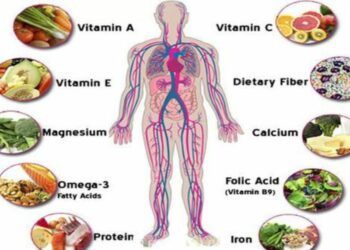 Just as Skoda’s Octavia filled a gap between Golf-sized hatches and larger Passat-shaped models, the vRS occupied ground that other hot hatches couldn’t. So what you got was most of the fun and mechanical packaging of a Mk5 Golf GTI in a car with considerably more space and practicality.
Just as Skoda’s Octavia filled a gap between Golf-sized hatches and larger Passat-shaped models, the vRS occupied ground that other hot hatches couldn’t. So what you got was most of the fun and mechanical packaging of a Mk5 Golf GTI in a car with considerably more space and practicality.
It’s a blend that proved very appealing and the second generation vRS went on to sell more than its well-regarded predecessor. As before, Skoda offered the fast Octavia in hatch and estate forms, but new for this 2006 car was the choice of a diesel engine. Clearly a sap to the company car market, the 2.0-litre TDI model was a strong seller and it’s easy to see why with up to 50mpg and 0-62mph in a respectable (if not that quick) 8.3 seconds.
For many though, the real interest lies in the 200hp turbo petrol. It cleared its way past 62mph in 7.2 seconds, meaning it was bang on the pace with its contemporaries. Choose the estate and it was only 0.1 seconds behind and it made no difference to these figures if you chose the six-speed manual or DSG twin-clutch auto transmissions.

For 2009, Skoda facelifted the vRS in line with the rest of the Octavia range and the hot hatch versions gained new engines. The petrol went from TFSI to TSI, while the diesel switched to the common rail 2.0-litre. Power remained the same and performance was unaffected. What might sway your choice is the later petrol is more robust than the earlier unit that suffers from the same niggles as found in the Mk5 Golf GTI.
Overall, though, the Mk2 vRS is a very handy car in any of its incarnations. The cabin is spacious and well kitted out, the boot is huge in hatch or wagon, and this is a car built with big mileages in mind.
Take a look at the classifieds and you’ll find plenty second gen vRS out there well into six-figure miles and still going strong. For these cars, reckon on spending from £2,000 for early 2006 models, and diesel commands a £500 premium on top of that. The DSG transmission is also sought after, so expect to pay as much £500 more for this compared to a car with the manual. A late model car with the petrol engine, DSG and 50,000 miles will set you back around £9,500.
Inspired? Buy a Skoda Octavia vRS here

Bodywork and interior
Air conditioning is supposed to be recharged every year and this costs about £90. Check the air-con blows cold when the dial is turned down low. The pump can fail and is £450 to replace.
ABS/ESP warning light stays on continuously. This is a fault common to many Volkswagen Group models that share the Mk5 Golf platform and is due to a broken ABS pump and module. A new one is £1,200 plus labour to fit it, but you can get rebuilt pumps for £250.
The rear wiper motor packs up, so try this during a test drive.
Look for rust on the sills. Any sign of this and you should look elsewhere as there are plenty of vRS models for sale.
Check the rear carpets for any signs of damp that point to faulty rear window seals.

Engine and transmission
Servicing intervals can stretch to as long as 18,600 miles depending on the model, but specialists advise sticking to a regime of 10,000-mile routine stops.
Fuel pump cam follower wears and can cause scoring to the camshaft. A replacement follower is cheap to buy and fit.
Dual mass flywheel fails and causes lumpy idling. A replacement is £220 plus fitting, so about £500 at an independent or fast-fit clutch specialist.
DSG gearbox needs its oil and filter changed every 40,000 miles to maintain smooth changes and avoid burning the clutches.
Skoda originally reckoned the cambelt on the earlier petrol engine was good for four years and 130,000 miles. Specialists recommend four years and 60,000 miles intervals and to replace the water pump at the same time for around £400.
Listen for any rattles from the turbo petrol engine on post-2009 cars as a warning the chain tensioner is about to let go. Replace this with an improved tensioner as used on 2011-on vRS models.
Only use 505.01 oil in the diesel engines. Check the service records for evidence of this being used.
Remapped ECUs are a common upgrade, but ask to see evidence it was properly installed.

Suspension and steering
Front bushes wear – listen for any knocks as you go over bumps.
Wheels, tyres and brakes
18-inch wheels look great on the vRS but ruin the ride comfort. A set of 16-inch wheels will greatly improve comfort, but many owners compromise between style and ride with 17-inch wheels.
SPECIFICATION – SKODA OCTAVIA VRS
Engine: 1,998cc 4-cyl/inline petrol; 1,968cc 4-cyl/inline turbodiesel
Transmission: 6-speed manual/DSG
Power (hp): 200/170@5,100/4,200rpm
Torque (lb ft): 207/258@1,800/1,750rpm
MPG: 37.7/49.6
CO2: 175/149g/km
Price new: £20,440/£21,260
Price now: £2,000 upwards
Source:-pistonheads






